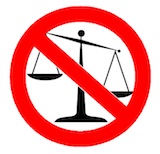
Two Derry men refused permission to appeal their case before the Supreme Court in London are to petition the court directly in their fight for compensation for the time they spent in prison.
Both men were cleared of murder in February 2007 alter judges declared unease about the safety of guilty verdicts against them. They are now seeking compensation for the years they spent in jail,
Sinn Fein assembly member Raymond McCartney and journalist Eamonn MacDermott, whose murder convictions were quashed, are to take their fight for compensation to Britain’s highest court despite an adverse ruling.
Last week, the Court of Appeal refused both men leave to go before the Supreme Court in London. However, they are now planning to petition directly by posing a question about the prosecution’s failure to disclose information about the police beating of a co-accused.
Mr McCartney and Mr MacDermott want to know if this amounts to a miscarriage of justice -- if it does they may then be entitled to compensation.
Mr McCartney served more than 17 years in jail. During that time he became a leading figure in the republican movement and took part in the Long Kesh hunger strikes.
Mr MacDermott, now a Derry-based journalist, spent 15 years behind bars. Both men said they were beaten by police who fabricated confessions to killings.
A scheme scheme used to pay compensation to those who suffered a miscarriage of justice was withdrawn, forcing the pair to launch judicial review proceedings against the British Direct Ruler Shaun Woodward.
Their case last week hinged on how compensation cases require proof of innocence while others need a demonstration that the trial process was seriously flawed.
Dismissing their appeals for compensation, the lord chief justice, Sir Declan Morgen held that although new evidence was enough to give rise to unease about the safety of the conviction, at its height it could only be said that the two might not have been convicted.
He insisted on two tests: demonstrating innocence, or to show something went seriously wrong in the trial resulting in the conviction of someone who should not have been convicted.
![[Irish Republican News]](https://republican-news.org/graphics/title_gifs/rn.gif)
![[Irish Republican News]](https://republican-news.org/graphics/title_gifs/harp.gif)

